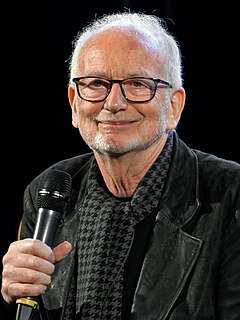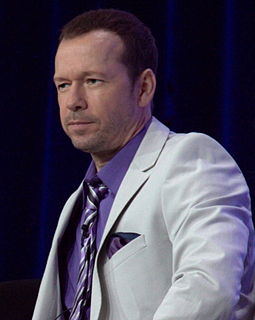A Quote by Cole Sprouse
When you're a child, and you're growing up, and you're mimicking a certain character, or you're trying to live and breathe a certain character on set for eight years that are also your formative years, you oftentimes take a lot of who you're playing into your real life and kind of become that thing.
Related Quotes
Playing a TV character for seven years is almost like when you do a play. You live, breathe, and everything else with that character 24-7 for six months or four months or whatever, and that gets very deep in your blood. When you do a TV character for seven years, that's a long time. It becomes a seminal era in your life.
I think you set up certain standards. I've always kind of believed in the Neil Pert way of making records where I'm trying to step it up every time I do something. You're trying to better yourself. You're also trying to make your audience or your listeners more interested. So, if you can up it, I think that's important.
People say that you want to be varied in your career, and I've done so many things and am very appreciative. But, the one thing I've never done and wanted to do was to be a regular on a TV show, where you get 22 weeks of the year to develop and play a character. I've done arcs of five or eight episodes on shows, but I'd like to have a character that's rich enough and deep enough to want to explore and live with for a few years. Playing the same character, but doing different scenes seems very exciting to me.
You have a certain objectivity, as a member of the audience, and you can come away maybe being provoked into a certain discourse or a certain arena of questioning, regarding how you would deal with things that your character has to deal with. Whereas when you're doing a film, once you start asking, "What would I do?," you're getting the distance greater between yourself and the character, or you're bringing the character to you, which I think is self-serving, in the wrong way. The idea is to bring yourself to the character.
In the biographical novel, there's only one person involved. I, the author, spend two to five years becoming the main character. I do that so by the time you get to the bottom of Page 2 or 3, you forget your name, where you live, your profession and the year it is. You become the main character of the book. You live the book.
There have been times I thought that when I got a certain point in the story, a certain character was going to do a certain thing, only to get to that point and have the character make clear that he or she doesn't want to do that at all. That long phone conversation I thought the character was going to have? He hangs up the phone before the other person answers, and twenty pages of dialog I had half written in my head go out the window.
If you're playing a fictional character, you can create a character, you can sort of take certain liberties. And when you're playing a real person who's actually standing there watching you, you know, it's - you do feel a weight. You know, you feel an obligation to not only be - to give the best performance that you can, but to make sure that you represent this person.
It's true in the beginning I started playing villains, and I think that's pretty clear, because if you don't conventionally look a certain way and you've got a certain kind of presence when you're young, then what's available to you is character roles, and the best character roles when you're young tend to be villains.




































